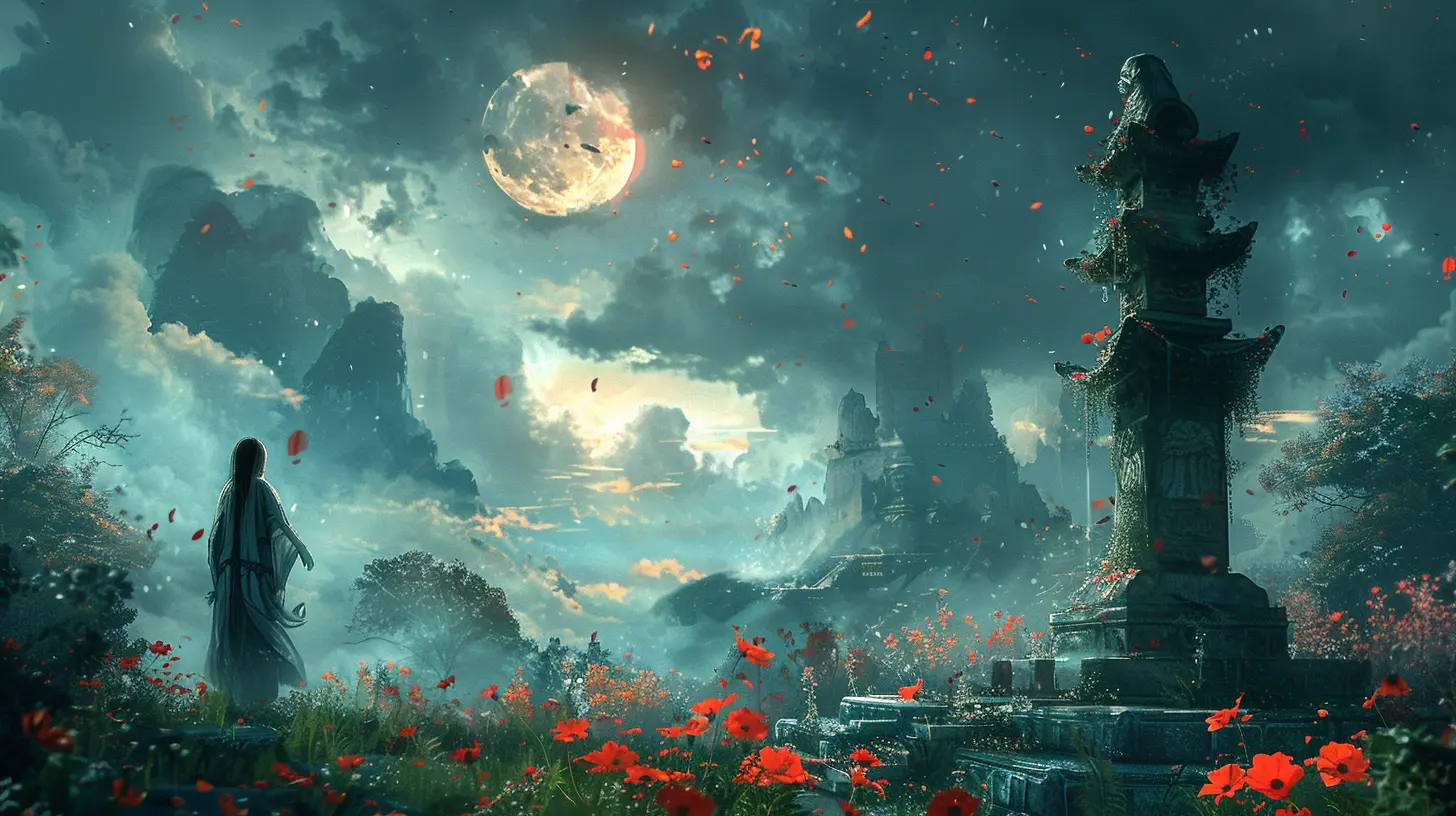How to Make Game Endings That Leave a Lasting Impact
10 July 2025
Let’s be honest—nothing stings quite like finishing a 40-hour game only for the ending to fall flat. It’s like binge-watching your favorite show, getting emotionally invested, and then getting slapped with a “meh” finale. Painful, right?
That’s because the ending is everything. It’s the final note, the grand finale, the emotional payoff (or punch in the gut) your players have been working toward. Whether you're an indie dev crafting your dream project or part of a studio team, getting the ending right can turn your game from “decent” to “legendary.”
So, how exactly do you make game endings that hit hard, stay with players long after the credits roll, and get talked about for years on Reddit threads and YouTube video essays?
Pull up a chair, and let’s break it down.
Why Game Endings Matter More Than You Think
Picture this: a player spends hours leveling up, solving complex puzzles, surviving impossible boss fights, and making agonizing moral choices. Now, imagine that player reaches the end… and it’s vague, rushed, or just doesn’t match the tone of the game.You’ve basically just served up a 5-star meal and finished it off with moldy cheesecake. Game endings are the emotional payoff for all the time, energy, and feelings players invest. Nailing it means your game gets remembered. Mess it up, and well… Mass Effect 3 controversy, anyone?
A powerful ending cements your story’s legacy. It’s what players talk about at 2 AM with their friends, what they post about on forums, and what brings them back to replay the game just to experience it all over again.
The Emotional Blueprint: Know the Core of Your Story
Before we dive into the mechanics of crafting a killer ending, let’s rewind for a second. First, ask yourself: what's the emotional core of your game?- Is it about redemption?
- Is it about loss?
- Is it about identity, revenge, freedom?
Once you lock this down, every beat of your ending should align with that core. Think of it like playing a chord on a guitar—every note has to harmonize. If your game is a tragic narrative about sacrifice, don’t suddenly throw in a Disney-style “happily ever after.” It’ll feel forced and disjointed.
Pro tip: Start thinking about your ending while writing the beginning. Foreshadowing and thematic consistency make a climax hit way harder.
Types of Game Endings That Stick
Just like books and movies, game endings come in all flavors. The key is choosing the kind that fits your story best while keeping players emotionally engaged. Here are a few common types that, when done right, leave a lasting mark:1. The Bittersweet Ending
This one's a classic. The hero might succeed, but at a great cost. Maybe they lose a close friend, leave something behind, or change in a way they can't undo. Think The Last of Us—that final conversation? Chills.Why it works: It feels real. Life isn’t always wrapped up with a neat little bow, and players respect that.
2. The Multi-Ending Format
You know the deal—choices throughout the game lead to different outcomes. Good, bad, neutral, or even the “secret” ending. It gives players agency and invites replayability.Why it works: You make players feel like their decisions matter. And curiosity means they'll dive back in to see the other paths.
3. The Twist Ending
Plot twists at the end are risky, but oh boy, when they land—they’re unforgettable. Bioshock Infinite, anyone?Why it works: Done right, it recontextualizes the entire game, making players want to replay with new understanding.
4. The Closed Loop
Some stories want to come full circle. The protagonist ends where they began—but they’re not the same person. It’s poetic, satisfying, and has that storybook close-the-cover feel.Why it works: It satisfies our love of symmetry and character growth.
Emotional Payoff > Plot Resolution
Let’s clear something up: players don’t just want all their questions answered—they want FEELINGS. A sense of closure. An emotional release. That cathartic “oh wow” moment.Your ending doesn’t have to explain every plot thread. In fact, ambiguity can work in your favor (see Inside by Playdead). But it must give players emotional satisfaction.
Think of your ending like a campfire story. The plot is the setup, but the emotion—that’s the punchline. That’s what burns in their memory.
Don't Underestimate Pacing
Nothing kills a great ending more than bad pacing. Ever played a game where the ending comes out of nowhere? Or worse, drags on for hours past the climax?Here's a little pacing tip: the emotional climax should hit just before the narrative ends.
- Wind things down afterward, but don't overstay your welcome.
- Let players soak in the aftermath.
- Avoid info-dumps. If they’re still reading a wall of text after the boss fight, you’ve missed the cue.
The Power of Player Choice
Gamers love feeling in control. Even in linear narratives, offering small moments of choice or reflection can enhance the impact of an ending.Let them...
- Choose how they respond to the final scene.
- Decide what happens to a key character.
- Make the ultimate sacrifice.
Even if those choices don’t change the final cutscene dramatically, the illusion of agency makes the ending feel personal.
Dialogue, Music, and Visuals: The Holy Trinity
If your story is the bones, your dialogue, music, and visuals are the skin and soul.- Dialogue should be raw, real, and minimal. You don’t need a monologue—just one unforgettable line can do the trick.
- Music is a cheat code for emotion. That final theme? It can hit harder than words. (Who else got goosebumps from the Red Dead Redemption 2 soundtrack?)
- Visuals should match the tone. This is your last chance to show, not tell. Use lighting, camera angles, and setting to leave a visual echo in the player’s mind.
Avoiding the Cop-Out Ending
You know the one. The “it was all a dream,” “none of it mattered,” or the “sudden deus ex machina.” These endings usually come from not wanting to commit. And players can smell that fear from a mile away.Earn your ending. Don’t shy away from hard truths or sad outcomes just because you’re worried about backlash. Bold choices may scare some players—but they'll respect you for sticking to your narrative guns.
Testing and Feedback: The Secret Sauce
Write. Test. Tweak. Repeat.Seriously, you can’t craft a great ending in a vacuum. What hits emotionally for one person might be a total shrug for another. That’s why early feedback is gold.
Watch players react:
- Are they shocked?
- Are they moved?
- Are they confused (in a bad way)?
Take that data and adjust. Sometimes trimming just one line or adding a second of music makes all the difference.
Endings Are Not Epilogues
This one’s subtle but important. The ending is the climax, the final resolution, the emotional crescendo. The epilogue is what comes after—wrapping things up, showing what changed, giving a glimpse of the future.Don’t blur the two.
The ending is “Frodo casts the ring into Mount Doom.”
The epilogue is “Frodo sails off into the West.”
See the difference?
Some Iconic Game Endings (That Got It Right)
Need some inspiration? These games nailed their finales and are worth dissecting:- What Remains of Edith Finch: Poetic, tragic, and beautifully human.
- Journey: Wordless, but emotionally rich.
- Undertale: Your choices really matter—and the game remembers.
- The Witcher 3: Multiple endings, all satisfying, all earned.
- Shadow of the Colossus: A haunting close that challenges morality.
Each of these games understood one thing: an ending isn’t just where the game stops—it’s where the experience sticks.
Final Thoughts: Earn the Right to Be Remembered
Here’s the truth—players might forget a few of your puzzles. They might not remember every enemy or side quest. But they WILL remember how your game made them feel. That final shot, that last line, that note that lingers.So when you craft your game’s ending, treat it with the same care (if not more) than your opening. Make it honest. Make it bold. Make it feel like the only way the story could have ended.
Because when done right? That finale will live rent-free in your players' heads for years.
all images in this post were generated using AI tools
Category:
Video Game DesignAuthor:

Avril McDowney
Discussion
rate this article
2 comments
Dior Murphy
Make them cry, not just rage-quit!
October 27, 2025 at 5:19 PM

Avril McDowney
Emotional depth is key! Craft relatable characters and poignant moments to evoke true feelings that resonate long after the game ends.
Coral Pruitt
Endings are the whispers in the dark that linger long after the game is over. Craft them like a haunting melody, and players will find themselves pondering choices, consequences, and the shadows of what could have been.
July 23, 2025 at 3:45 AM

Avril McDowney
Absolutely! Crafting endings that resonate deeply can elevate the entire gaming experience, inviting players to reflect on their journey long after the game has ended.


